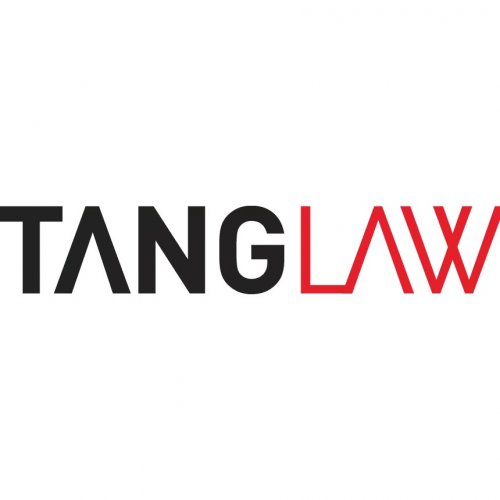Best Will & Testament Lawyers in Australia
Share your needs with us, get contacted by law firms.
Free. Takes 2 min.
Or refine your search by selecting a city:
List of the best lawyers in Australia
About Will & Testament Law in Australia
A Will & Testament is a legal document that outlines how you wish your assets to be distributed after your death. In Australia, having a valid will ensures that your estate is distributed according to your wishes and can help prevent disputes among beneficiaries. Each state and territory in Australia have their own laws governing the preparation and execution of wills, but there are common principles across the country that dictate how a will should be made and what constitutes a valid will.
Why You May Need a Lawyer
While it is possible to create a will without legal assistance, there are several circumstances where consulting a lawyer is advisable. Common situations include complex family dynamics (such as blended families), having substantial or complex assets, including overseas property, wanting to include specific clauses or trusts within your will, or if you simply want peace of mind knowing your will is legally sound. A lawyer can also help ensure that your will complies with local laws and can advise on tax implications and strategies to ensure maximum benefit for your beneficiaries.
Local Laws Overview
In Australia, the key aspects of local laws related to wills and testaments include the requirement for the will to be in writing, signed, and witnessed by at least two people who are not beneficiaries. Testamentary capacity, meaning the ability to understand and approve the contents of the will, is crucial. The will-maker must be of sound mind and aware of the assets they possess and the people they wish to benefit. Also, there are laws concerning the modification or revocation of wills, which often involve executing a new will or creating a codicil.
Each state and territory may have additional rules such as the handling of intestate estates (when someone dies without a will), family provision claims, and the administration of the estate. Engaging with legal professionals familiar with local laws is often necessary to navigate these aspects effectively.
Frequently Asked Questions
What happens if I die without a will in Australia?
If you die without a will, you are said to have died intestate. Your estate will be distributed according to a predetermined formula set out by local state or territory law, which may not reflect your personal wishes.
Can I write my will myself?
Yes, you can write your own will, known as a 'do-it-yourself' will. However, it is important to ensure that it meets all legal requirements to be considered valid. Consulting with a lawyer is recommended to avoid disputes and ensure clarity.
How often should I update my will?
It's advised to review and potentially update your will whenever your financial situation changes, when there are significant changes in your personal life (such as marriage, divorce, or the birth of a child), or at least every few years.
Who can be a witness to my will?
In Australia, a witness must be over the age of 18 and not be a beneficiary or the spouse of a beneficiary under the will. This ensures they have no vested interest in the will's contents.
What is an executor, and who should I choose?
An executor is responsible for administering your estate according to your will. It's important to choose someone you trust, who is organized, and ideally, has some understanding of financial matters. You can appoint a professional, such as a solicitor, if needed.
Can I leave gifts to underage children in my will?
Yes, you can leave gifts to children under the age of 18, often through a trust set up in your will, which is managed by a nominated trustee until they reach the age of inheritance.
What is a 'family provision' claim?
Family provision claims are made by individuals who believe they have not been adequately provided for in a deceased person's will. They are common in cases of close family relations and are decided by the courts based on necessity and fairness.
Can I exclude someone from my will?
While you can choose to exclude individuals from your will, be aware that certain individuals (like spouses or children) may contest the will. It is advisable to provide clear reasons to reduce the likelihood of a successful challenge.
What is a testamentary trust?
A testamentary trust is a trust created by a will. It comes into effect upon the death of the will-maker and can offer tax benefits and asset protection for beneficiaries.
Are there tax implications for beneficiaries in Australia?
Australia does not have estate or inheritance taxes. However, there may be tax implications related to the income generated from the estate or capital gains tax on certain assets. Consulting a legal or financial advisor could be beneficial for understanding these aspects.
Additional Resources
For more information, you can contact local law societies such as the Law Society of New South Wales or the Law Institute of Victoria. The Public Trustee in your state or territory can also provide assistance and may offer will-making services. Websites such as the Australian government's MoneySmart platform provide guidance on estate planning, while private legal firms offer detailed advice on Will & Testament matters.
Next Steps
If you need legal assistance with a Will & Testament, consider reaching out to a qualified lawyer who specializes in estate planning. Prepare by listing your assets, thinking about your intended beneficiaries, and considering who you trust to be your executor. Initial consultations can help clarify your needs, and many firms outline their fees upfront. Plan to regularly review and update your will to ensure it meets your ongoing personal circumstances and complies with any changes in the law.
Lawzana helps you find the best lawyers and law firms in Australia through a curated and pre-screened list of qualified legal professionals. Our platform offers rankings and detailed profiles of attorneys and law firms, allowing you to compare based on practice areas, including Will & Testament, experience, and client feedback.
Each profile includes a description of the firm's areas of practice, client reviews, team members and partners, year of establishment, spoken languages, office locations, contact information, social media presence, and any published articles or resources. Most firms on our platform speak English and are experienced in both local and international legal matters.
Get a quote from top-rated law firms in Australia — quickly, securely, and without unnecessary hassle.
Disclaimer:
The information provided on this page is for general informational purposes only and does not constitute legal advice. While we strive to ensure the accuracy and relevance of the content, legal information may change over time, and interpretations of the law can vary. You should always consult with a qualified legal professional for advice specific to your situation.
We disclaim all liability for actions taken or not taken based on the content of this page. If you believe any information is incorrect or outdated, please contact us, and we will review and update it where appropriate.
Browse will & testament law firms by city in Australia
Refine your search by selecting a city.

















